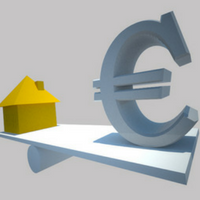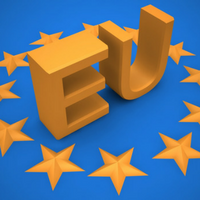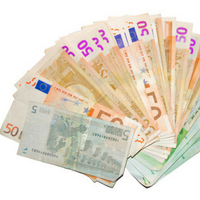EU Budget – the effects of fiscal policy
| 20-02-2018 | treasuryXL |
 Every year the EU raises money by applying a levy on member states that represents a percentage of their Gross National Income (GNI). The EU Budget operates on a 7 year plan and then an annual budget is proposed and agreed. The EU strives to use 94% of expenditure on policies and 6% on administrative costs. As with all budgets, there are 2 sides – income and expenditure. There are 4 main sources of income – traditional own resources, VAT (BTW) based resources, GNI based resources, and other resources. There are 6 main sources of expenditure – growth, natural resources, security and citizenship, foreign policy, administration, and compensations.
Every year the EU raises money by applying a levy on member states that represents a percentage of their Gross National Income (GNI). The EU Budget operates on a 7 year plan and then an annual budget is proposed and agreed. The EU strives to use 94% of expenditure on policies and 6% on administrative costs. As with all budgets, there are 2 sides – income and expenditure. There are 4 main sources of income – traditional own resources, VAT (BTW) based resources, GNI based resources, and other resources. There are 6 main sources of expenditure – growth, natural resources, security and citizenship, foreign policy, administration, and compensations.
Furthermore, there are a number of correction mechanisms designed to rebalance excessive contributions by certain member states, including – the UK rebate, lump sum payments, and reduced VAT (BTW) call rates. On the expenditure side, Growth and natural resources – which include the common agricultural and fisheries policies – account for more than 90% of expenditure. Every country within the EU makes contributions and receives expenditure within their state from the EU. The difference represents the net contribution per country per year.
When a country pays a net contribution, the excess funds are redistributed within the EU to other member states. This payment to other member states is a fiscal transfer. Information relating to the sum of fiscal transfers used in this blog were sourced at – www.money-go-round.eu
This website shows gross payments, gross receipts and net balance per country per year from 1976. The top 5 net payers since 1976 have been Germany, France, the united Kingdom, Italy and the Netherlands. These 5 countries have contributed a net balance of EUR 925 billion. Conversely, the top 5 net receivers since 1976 have been Greece, Spain, Poland, Portugal and Ireland. These 5 countries have received a net balance of EUR 410 billion. This is a redistribution of both income and wealth.
Classically, the objectives of redistribution of incomes are to increase economic stability and opportunity for the less wealthy members of society. This should lead to a society where financial wealth is more evenly divided, increasing the standard of living among the poorer members. Without this mechanism, there is more risk of economic crises and less harmony between citizens of different social classes. One of the main questions has always been how long and beneficial this transfer should be. There is a danger that some people become permanently dependent on the transfer and do not actually improve their own living standards – they are seen to consume more, but not to improve their standard of living.
So how does it look within the EU?
The country that has received the most from fiscal transfers has been Greece. They ascended to the EU (in its previous incarnation) in 1981. They have been a net receiver of the EU budget for every year since 1981. In total, they have received EUR 118 billion in transfers. What Greece ever did with all this money is the subject of many articles – but it does not appear that the money was used to raise the living standards of the poor or invest in the infrastructure of Greece.
And therein lies the major problem for the EU – the mechanism used for redistribution has had no long term beneficial effect on the economy. There is no system of checks and balances to control what is done with the money. The ECB published a report at the start of 2017 about household finance and consumption in the EU. Its findings were that disparity was growing within the EU. Other reports have highlighted that whilst eastern Europe has seen large rises in GDP per capita growth, this added wealth has not been distributed evenly among all residents.
The ideals of the EU are worthy and noble – their implementation and management however, are not creating the society that they dreamt and spoke about.
Next – can fiscal union work?
If you want more information please feel free to contact us via email [email protected]









